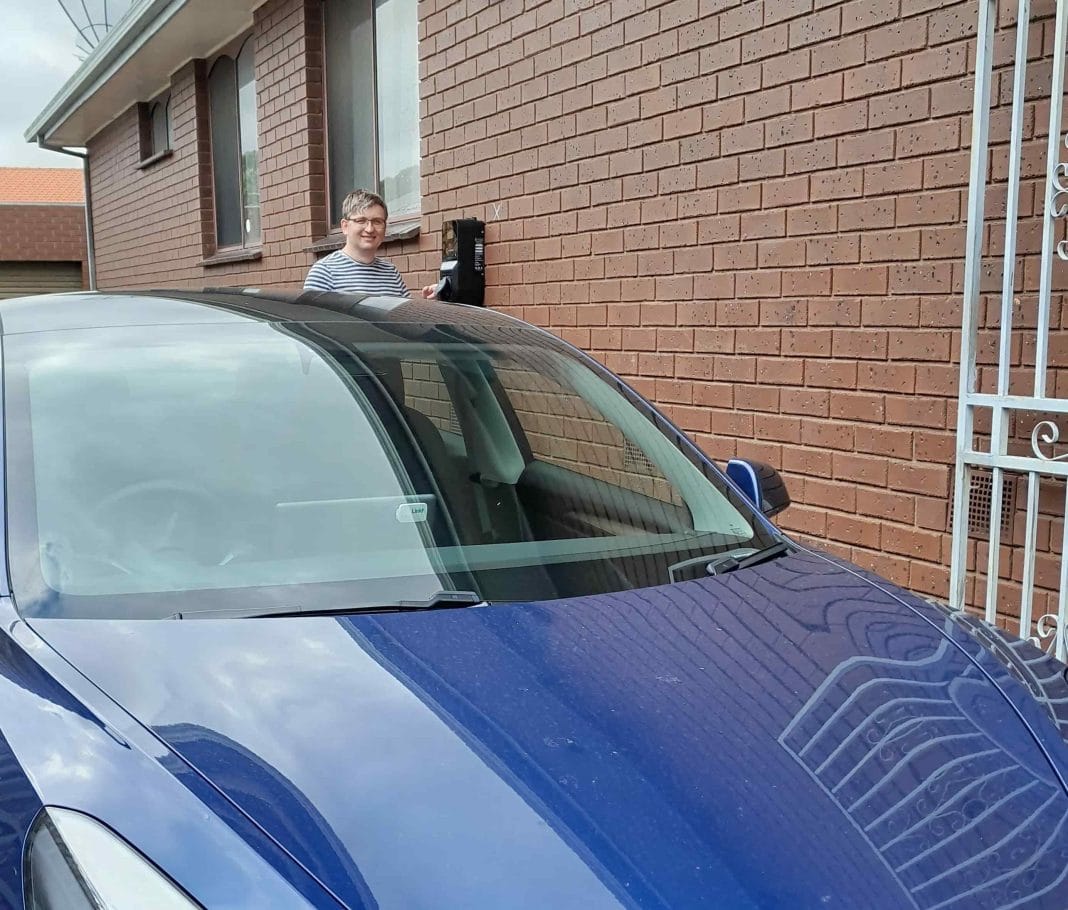Electric Vehicle (EV) drivers in the ACT, Victoria and Tasmania are participating in a ‘smart charger’ trial looking at how home fast-charging technology can potentially reduce their energy costs as well as help manage the additional demands on the electricity grid during peak times.
Even before recent petrol price increases, many Australians were thinking seriously about making the shift to an EV – this means electricity networks are also thinking seriously about what they need to do get ready for increased demand on the grid, with a $3.4 million ‘smart charger’ trial kicking off today.
As part of the 12-month trial ‘smart chargers’ have been installed at the homes of more than 160 EV owners in the ACT, Victoria and Tasmania. These smart chargers not only charge EVs up to three times faster than the chargers that usually come with the vehicle, but also allow electricity network operators to dynamically adjust when the vehicle charges.
This means participants’ EVs can be plugged in when it’s convenient, but charged at times when the electricity grid has more capacity, whether that’s after midnight, or during the day when excess solar energy is being fed back into the grid – ideally leading to lower electricity bills for all consumers.
Information about EV charging habits so far shows most owners plug in their vehicles to charge at around 6pm, already a time of high demand on the electricity grid.
Through the trial, participants will have more visibility of their EV charging data, as well as being able to charge their cars faster, and electricity network operators will gain a better understanding of how to work with EV owners to manage the increasing demand on the grid.
‘Solar soak’ events on forecast sunny days will be a key feature of the trial. During these events, participants will be notified ahead of time to have their cars plugged in during a day when there is an abundance of solar energy being exported into the grid, to better understand the impact of EV charging in absorbing surplus electricity and helping manage grid voltage.
According to figures from the Electric Vehicle Council, EV sales are rapidly increasing, jumping from 6,900 sold in 2020 to 20,665 in 2021. Australian Government projections indicate EVs will be up to 30 per cent of all new cars sold by 2030, which would mean about 1.7 million electric cars on our roads – all of which will need charging and place demands on the grid.
The EV Grid trial is being led by Jemena, which delivers electricity to homes and businesses across north and western Melbourne. Jemena has partnered with EVOEnergy in the ACT, Victorian electricity distribution network businesses AusNet Services and United Energy, and TasNetworks in Tasmania.
Leading EV charging infrastructure business JET Charge is the trial’s technology partner, responsible for providing and installing the smart chargers across all locations. The trial has been co-funded by the Australian Renewable Energy Agency (ARENA) under the Advancing Renewables Program.
Trial outcomes will be shared with electricity retailers, electric vehicle manufacturers, governments and other energy industry stakeholders. In total, 123 Victorian, 22 ACT and 22 Tasmanian households have had smart chargers installed to participate in the trial.
“We know Canberrans want innovative, sustainable and low-cost energy solutions,” said EVOenergy General Manager Peter Billing, “so we’re focusing on a more proactive, responsive and flexible approach to balancing electricity supply and demand, while we continue to enable more distributed energy resources like electric vehicles.”
For more information go to evgrid.com.au or arena.gov.au
Canberra Daily would love to hear from you about a story idea in the Canberra and surrounding region. Click here to submit a news tip.



